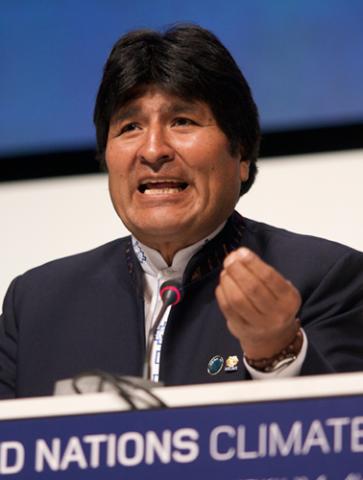
Latin American nations have had strong negative reactions to Israel’s Operation Protective Edge, the term used for its recent military operation against Hamas, threatening to set back Israeli-Latin America relations that had been growing in recent years. The following article was published in the September-October 2014 NewsNotes.
In an attempt to diminish its dependency on Europe, Israel has been trying to strengthen its economic relations with a number of Latin American countries. Trade with many Latin American countries has been growing rapidly in the past decade: In February, Israel gained status as an observer nation to the Pacific Alliance, a trade coalition consisting of Mexico, Chile, Colombia and Peru. Weeks before the Gaza incursion, Israel signed a bilateral trade agreement with Colombia. Brazil has ramped up its trade with Israel, importing fertilizers and drone airplanes.
The attack on Gaza which began on July 8 aroused strong reactions in Latin America. Bolivia, which had already cut diplomatic relations with Israel after another military invasion into Gaza in 2008-09, heartily condemned the attack. President Evo Morales (right) asked the UN High Commissioner for Human Rights to prosecute Israel for crimes against humanity and terminated a 1972 agreement with Israel that allowed its citizens to enter Bolivia without a visa. While announcing this decision, Morales stated, “We are saying, in other words, that Israel a terrorist state.”
Venezuela, which also cut relations with Israel in 2009, supported Bolivia’s initiative in the UN and declared that it and other members of the Bolivarian Alliance for the People of Our America (ALBA) would establish orphanages for Palestinian children whose parents had been killed in the attack.
When Israel initiated its ground assault on Gaza on July 17, Ecuador withdrew its ambassador to Israel. Brazil followed with the same measure a week later, and on July 29 Chile, Peru, Nicaragua and El Salvador all announced the withdrawal of ambassadors from Israel. Chile also suspended negotiations of a bilateral trade agreement; President Michelle Bachelet condemned the attacks as “collective punishment” that “violate the principle of proportionality… an indispensible requirement for the justification of legitimate defense.”
While meeting on July 29, four of the five members of the Southern Common Market, Mercosur (Brazil, Argentina, Uruguay and Venezuela) issued a strong statement in which they “energetically condemn[ed] the disproportionate use of force by the Israeli army in the Gaza Strip, which in the majority affects civilians, including children and women.” Paraguay, the fifth Mercosur member, issued its own statement the next day calling for an “immediate end to aggression and hostilities in the Gaza Strip.”
As Farid Kahhat, a Middle East expert at the Catholic University of Peru, pointed out, “It isn’t only the nations with left-leaning governments that have recalled their ambassadors… This transcends ideologies.” Colombia, while initially stressing the responsibility of Hamas for the violence without mentioning an Israeli role, later stated on July 22 that it “rejects the military offensive by Israeli forces in the Gaza Strip” and expressed condolences for “victims of Israel’s retaliatory actions.”
Latin America has set itself apart from other regional blocs in its outspoken condemnation of the Israeli attacks in Gaza, though according to Michael Shifter with the Inter-American Dialogue, it is not surprising given that, by 2011, 11 Latin American governments had recognized Palestine as a state. (At least 19 currently recognize Palestine officially.) What remains to be seen, now that Israel and Gaza have agreed to a long-term ceasefire, is how long it will take for countries to reestablish relations with Israel and if they will be able to return to strengthening their economic and political ties.
Photo of Bolivia's President Evo Morales by Wikimedia Commons user Kirjapan
